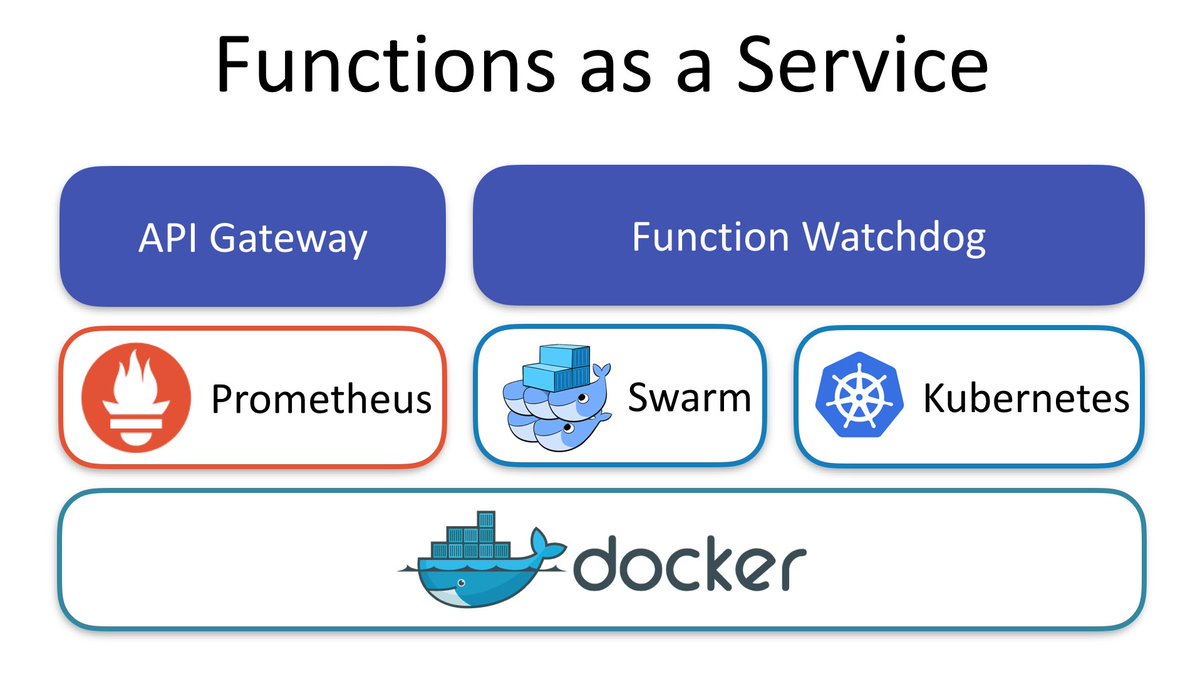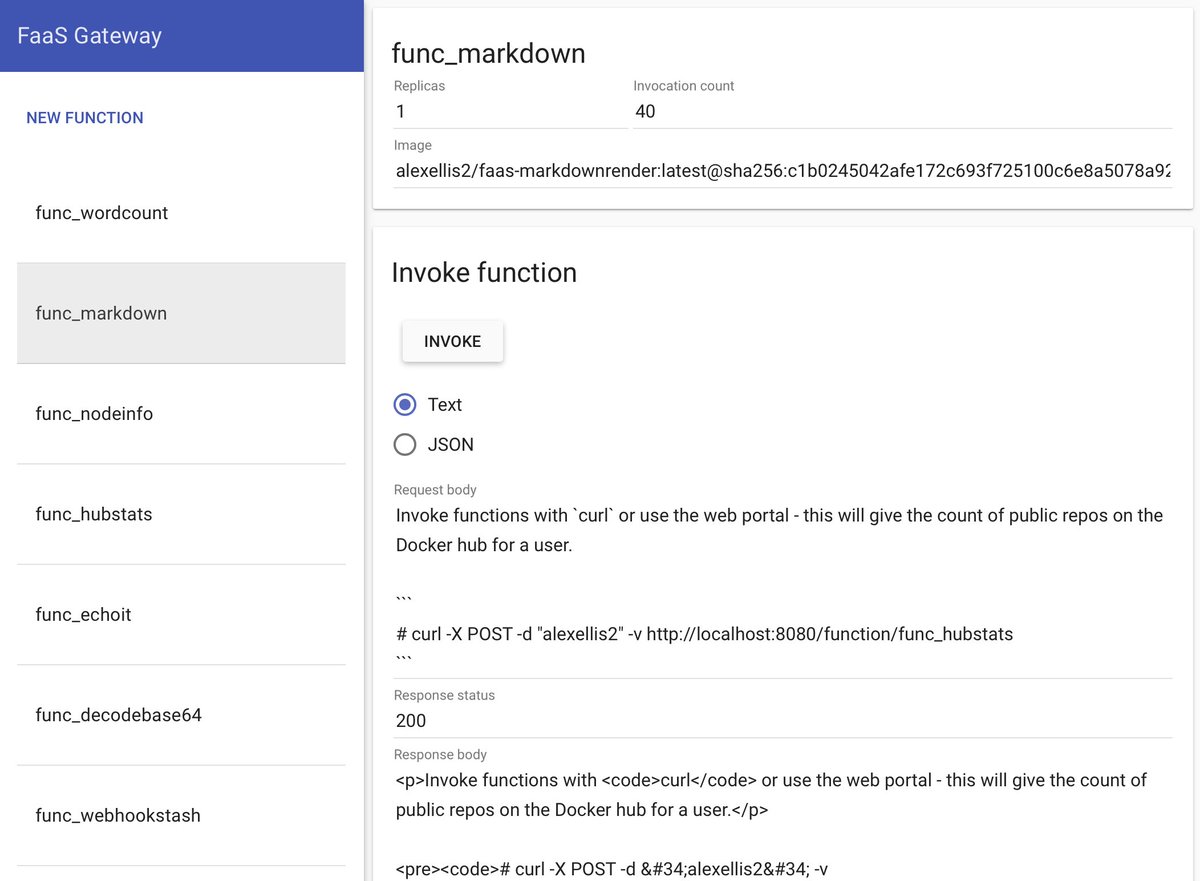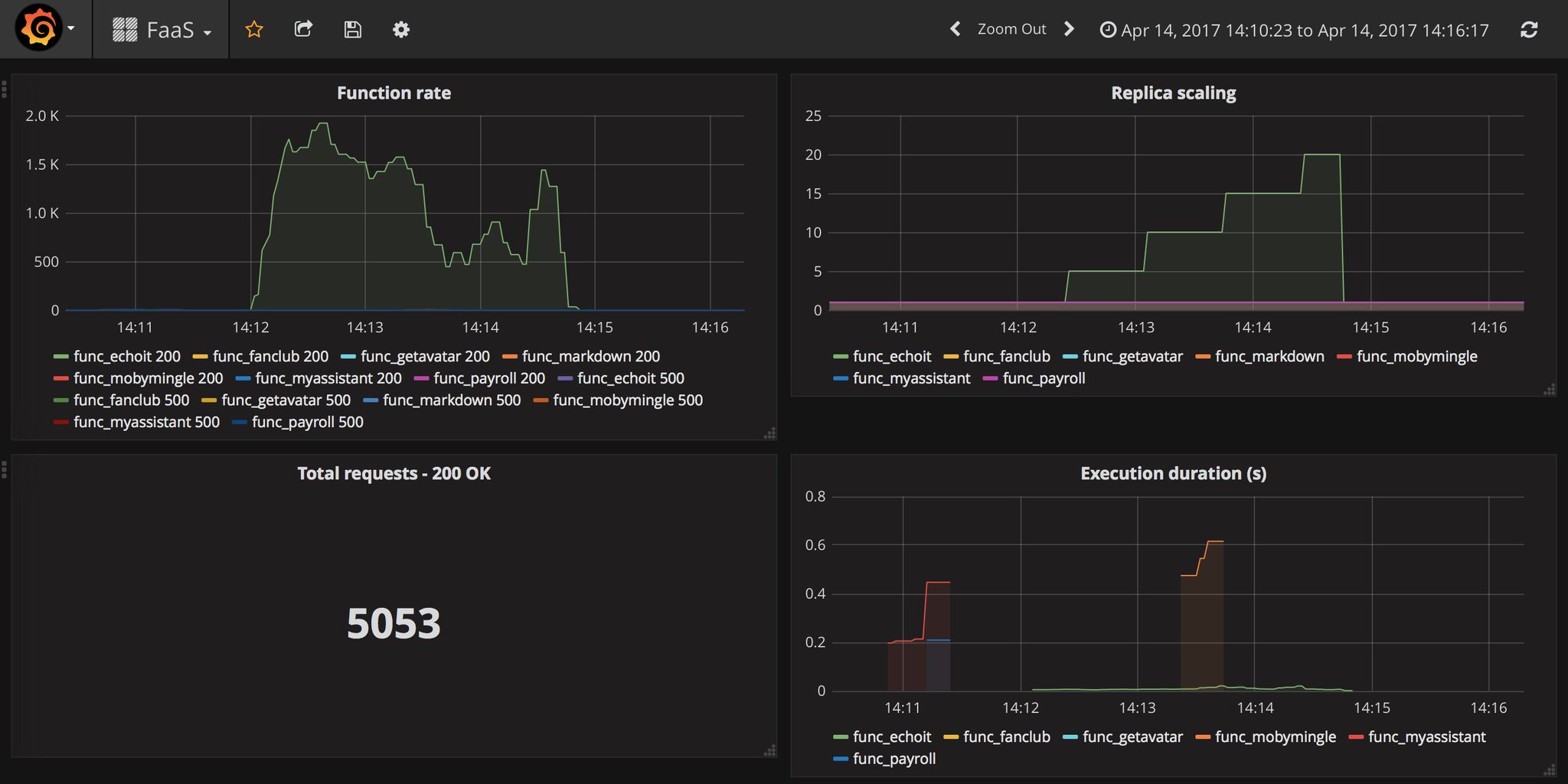OpenFaaS (Functions as a Service) is a framework for building serverless functions with Docker and Kubernetes which has first class support for metrics. Any process can be packaged as a function enabling you to consume a range of web events without repetitive boiler-plate coding.
Highlights
- Ease of use through UI portal and one-click install
- Write functions in any language for Linux or Windows and package in Docker/OCI image format
- Portable - runs on existing hardware or public/private cloud - Kubernetes and Docker Swarm native
- CLI available with YAML format for templating and defining functions
- Auto-scales as demand increases
We need your support to keep delivering on Serverless Functions Made Simple so pledge to OpenFaaS and become a backer or a sponsor with a unique set of rewards. Help us hit our goals and get to back a great project at the same time.
View the List of backers and sponsors
For stickers, swag, media or press-kit information head over to openfaas/media
OpenFaaS is an independent project created by Alex Ellis which is now being built and shaped by a growing community of contributors. Project website: openfaas.com.
Serverless Functions Made Simple.
- You can make any Docker image into a serverless function by adding the Function Watchdog (a tiny Golang HTTP server)
- The Function Watchdog is the entrypoint allowing HTTP requests to be forwarded to the target process via STDIN. The response is sent back to the caller by writing to STDOUT from your application.
- The API Gateway provides an external route into your functions and collects Cloud Native metrics through Prometheus.
- Your API Gateway will scale functions according to demand by altering the service replica count in the Docker Swarm or Kubernetes API.
- A UI is baked in allowing you to invoke functions in your browser and create new ones as needed.
The API Gateway is a RESTful micro-service and you can view the Swagger docs here.
Any container or process in a Docker container can be a serverless function in FaaS. Using the FaaS CLI you can deploy your functions quickly.
Create new functions from templates for Node.js, Python, Go and many more. If you can't find a suitable template you can also use a Dockerfile.
The CLI is effectively a RESTful client for the API Gateway.
When you have OpenFaaS configured you can get started with the CLI here
You can generate new functions using the FaaS-CLI and built-in templates or use any binary for Windows or Linux in a Docker container.
- Python example:
import requests
def handle(req):
r = requests.get(req, timeout = 1)
print(req +" => " + str(r.status_code))handler.py
- Node.js example:
"use strict"
module.exports = (callback, context) => {
callback(null, {"message": "You said: " + context})
}handler.js
Other Sample functions are available in the Github repository in a range of programming languages.
We are building a new documentation site at docs.openfaas.com. The source repository for the documentation website is openfaas/docs.
For all other guides, tutorials, trouble-shooting and blog posts head over to our guides page on GitHub.
You can learn how to build functions with OpenFaaS using our hands-on labs in the OpenFaaS workshop.
Kubernetes
OpenFaaS is Kubernetes-native - you can follow the deployment guide here.
Docker Swarm
The deployment guide for Docker Swarm contains a simple one-line command to get you up and running in around 60 seconds. It also includes a set of sample functions which you can use with the TestDrive instructions below.
Deployment guide for Docker Swarm
Docker Playground
You can quickly start OpenFaaS on Docker Swarm online using the community-run Docker playground: Play-with-Docker (PWD)
Simply follow the deployment guide for Swarm above in a new session
You will need a free Docker Hub account to get access. Get one here: Docker Hub
Here is a screenshot of the API gateway portal - designed for ease of use.
Great overview of OpenFaaS features, users and roadmap
Functions as a Service or FaaS was a winner in the Cool Hacks contest for Dockercon 2017.
If you'd like to find the functions I used in the demos head over to the faas-dockercon repository.
Background story
- Introducing OpenFaaS (Functions as a Service) - August 2017
- Functions as a Service (FaaS) - January 2017
Have you written a blog about OpenFaaS? Send a Pull Request to the community page below.
If you'd like to join OpenFaaS community Slack channel to chat with contributors or get some help then check out this page on community.
OpenFaaS is written in Golang and is MIT licensed - contributions are welcomed whether that means providing feedback, testing existing and new feature or hacking on the source.
Please see the guide on community & contributing
The roadmap is represented in GitHub issues and a Trello board. There is also a historical ROADMAP file in the main faas repository.
Example of a Grafana dashboards linked to OpenFaaS showing auto-scaling live in action: here
An alternative community dashboard is available here






